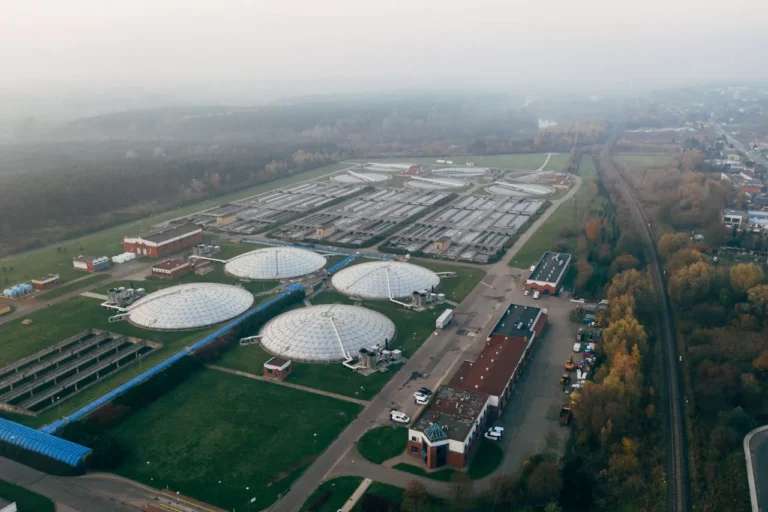
Chai Discovery Unveils Breakthrough With Chai-2: Fully De Novo Antibody Design Using AI
Chai Discovery, a pioneer in AI-driven molecular design, has announced a major scientific breakthrough with the release of Chai-2, an advanced artificial intelligence model that achieves fully de novo antibody design with unmatched precision and speed. For the first time, antibodies can be designed entirely from scratch—down to their key functional components—based solely on a target and epitope, setting a new benchmark for the field.
A Leap in Antibody Engineering: 20% Hit Rate From Scratch
The company reports that Chai-2 achieves an unprecedented ~20% hit rate when generating antibodies de novo, compared to <0.1% hit rates typically observed with conventional techniques, including older AI-assisted models. The AI system designs all complementarity-determining regions (CDRs)—the core binding regions of antibodies—without relying on existing structural templates or experimental feedback loops.
Extensive lab validation was performed across approximately 50 diverse antibody targets, with Chai-2 successfully producing high-quality hits in nearly half of these cases. In each case, fewer than 20 designed antibodies were synthesized and tested—an unusually low number given the high success rate. These antibodies displayed:
- Nanomolar-range binding affinities
- High specificity for intended targets
- Strong developability profiles, such as solubility and expression efficiency
These characteristics suggest strong potential for therapeutic development with minimal downstream optimization.
From Target to Therapeutic Candidate in Under Two Weeks
What makes Chai-2 particularly transformative is its speed and generalizability. The system requires only a target and epitope prompt, then generates fully novel antibody sequences that are structurally viable and ready for lab synthesis. Antibodies can be produced and validated in the lab in less than two weeks, enabling rapid design cycles and opening the door to faster therapeutic development.
Chai-2 supports multiple antibody formats, including both single-domain nanobodies (VHHs) and VH-VL paired structures, making it a versatile tool across a range of therapeutic and diagnostic applications.
“Chai-2 is like Photoshop for proteins—it enables precise, rapid, and intuitive creation of biologic therapeutics, which can enable previously intractable targets,” said Joshua Meier, the co-founder. “We built it to enable outcomes that were previously impossible, and we’re thrilled by these results. This marks a turning point in science.”
Real-World Impact: Solving $5 Million Problems in Hours
Chai-2’s potential isn’t just theoretical—it has already delivered dramatic real-world results. In one notable case, it’s system was used to solve a therapeutic antibody challenge that had previously consumed over $5 million in R&D costs using traditional methods. It resolved the issue in a matter of hours, producing an effective antibody design that was validated in the lab within two weeks.
“I’ve been impressed by the scale of it’s ambition since our early conversations—a time when such progress scarcely seemed possible,” said Dr. Mikael Dolsten, who served as Chief Scientific Officer at Pfizer for over 15 years. “It’s incredible to see this breakthrough come so quickly. Chai-2 holds high potential for de novo design of medicines with short turnaround times.”
Addressing Industry Challenges With AI Innovation
The pharmaceutical industry is under increasing pressure to innovate. With patent cliffs, rising R&D costs, and the need for faster development cycles, biopharma companies are searching for new tools that can deliver differentiated, high-impact therapies with fewer resources.
Chai-2 directly addresses these needs by:
- Reducing the time and cost of antibody discovery
- Eliminating the need for high-throughput screening or immunization
- Enabling design for difficult or novel targets that are often intractable with traditional methods
This opens up therapeutic possibilities for previously “undruggable” targets and rare diseases that suffer from a lack of tailored biologics.
Validated Success Beyond Antibodies: Miniproteins
While antibodies are the focus of Chai-2’s initial rollout, the system’s performance has also extended to miniprotein target design. It tested against five distinct miniprotein targets and achieved validated binding hits for all five, surpassing hit rates from prior state-of-the-art AI and computational approaches.
This versatility demonstrates Chai-2’s promise as a generalizable protein design engine, not limited to just antibodies but capable of supporting the broader field of synthetic biology and protein therapeutics.
Early Access Program and Strategic Partnerships
To help scale its impact, it also announced it will open early access to Chai-2 for a limited group of strategic partners. These collaborations will allow leading biotech and pharmaceutical companies to integrate it into their discovery pipelines, further validating and expanding its capabilities in real-world settings.
“We see Chai-2 as a platform technology,” said Meier. “By working with select partners, we can accelerate drug discovery timelines and expand therapeutic frontiers that were previously out of reach.”
The company did not disclose the names of its initial partners but indicated that discussions are ongoing with several major pharmaceutical and biotechnology firms.
A Turning Point for AI in Molecular Biology
Chai-2’s launch marks a significant inflection point for AI in structural biology and therapeutic development. While earlier AI models like AlphaFold and RosettaFold advanced structure prediction, it moves decisively into de novo design, offering a creative AI solution that doesn’t just predict—but invents—new biological molecules.
With its combination of speed, precision, and high hit rates, it has the potential to reshape how biologics are discovered, significantly shortening the path from concept to clinic.
Chai Discovery has positioned itself at the frontier of this new paradigm, using AI to unlock the full potential of protein engineering and accelerate the discovery of life-saving therapeutics.







